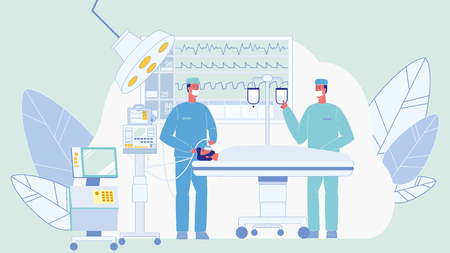Introduction to Occupational Therapy for Stroke Survivors in the UK
Occupational therapy plays a vital role in the journey of recovery for individuals who have experienced a stroke. In the UK, stroke is one of the leading causes of disability, with thousands of people and their families navigating the challenges of rehabilitation each year. The primary goal of occupational therapy is to support stroke survivors in regaining independence and enhancing their quality of life by helping them relearn or adapt skills needed for everyday activities. Within the context of the NHS and community health services, occupational therapists work closely with multidisciplinary teams, including physiotherapists, speech and language therapists, nurses, and doctors, to deliver person-centred care tailored to each individuals unique needs and goals. Whether assisting someone in returning to work, managing daily self-care tasks, or re-engaging with cherished hobbies, occupational therapy interventions are designed to empower stroke survivors to live as independently as possible. The approach in the UK emphasises holistic assessment, practical support, and collaboration with family members and carers, ensuring that every aspect of recovery is addressed compassionately and effectively.
2. Assessment and Holistic Approaches
When supporting stroke survivors in the UK, occupational therapists follow a thorough assessment process that places the individual at the centre of care. The assessment not only identifies physical challenges but also explores cognitive, emotional, and environmental factors that impact daily life. This holistic, person-centred approach is fundamental to UK occupational therapy practice, ensuring interventions are tailored to each individuals unique needs, preferences, and goals.
Comprehensive Assessment Methods
UK occupational therapists use a blend of standardised tools and informal observations to build a complete picture of a stroke survivors abilities and difficulties. These assessments can take place in hospitals, rehabilitation centres, or within the persons own home. Below is an overview of commonly used assessment methods:
| Assessment Method | Description | Purpose |
|---|---|---|
| Standardised Tools (e.g., Barthel Index) | Structured scales measuring independence in daily activities | To establish baseline function and track progress |
| Clinical Observation | Therapist observes performance in real-life tasks | To identify subtle difficulties not captured by tests |
| Patient Interviews & Goal Setting | Open conversations with the individual and their family | To understand personal priorities and set meaningful goals |
| Environmental Assessments | Reviewing home or community settings for barriers | To recommend adaptations for safety and independence |
The Person-Centred Approach in Practice
A person-centred approach means that every assessment is conducted with respect, empathy, and active listening. Occupational therapists in the UK often use tools such as the Canadian Occupational Performance Measure (COPM) to facilitate collaborative goal-setting. The survivor’s own aspirations—whether returning to gardening, preparing meals, or managing finances—guide the direction of therapy. Family members and carers are included in discussions where appropriate, recognising their vital role in ongoing recovery.
Key Principles of Holistic Assessment:
- Respect for individuality: Each person’s story and background are valued.
- Empowerment: Individuals are encouraged to make informed choices about their care.
- Cultural sensitivity: Therapists consider cultural values and beliefs when planning interventions.
- Collaboration: Therapy is a partnership between the survivor, their support network, and the professional team.
- Lifeworld approach: Attention is paid to what gives meaning and purpose to the person’s life.
Towards Tailored Interventions
This careful assessment phase ensures that subsequent interventions are both effective and meaningful. By focusing on what matters most to stroke survivors—and involving them as partners at every stage—UK occupational therapists foster confidence, dignity, and hope on the journey towards recovery.

3. Rehabilitation in Daily Living Activities
For stroke survivors in the UK, regaining independence in daily living activities is a central focus of occupational therapy. These interventions are designed not only to rebuild physical ability but also to foster confidence and autonomy, enabling individuals to participate fully in their personal and community lives.
Personal Care Strategies
Occupational therapists work closely with stroke survivors to enhance their skills in essential personal care tasks such as washing, dressing, grooming, and toileting. Therapists may introduce adaptive equipment—like one-handed dressing aids or non-slip bath mats—to support safe and effective self-care at home. Additionally, gentle encouragement and graded task practice help rebuild routines that foster dignity and well-being.
Meal Preparation and Nutrition
Safe meal preparation is another priority area, as it underpins both health and independence. Interventions may include teaching safer kitchen techniques, reorganising kitchen layouts for easier access, and recommending utensils with adapted grips. Therapists also collaborate with family carers to ensure that nutritional needs are met while promoting opportunities for the survivor to participate meaningfully in food-related activities.
Accessing the Community
Community engagement is vital for emotional resilience and social connection after a stroke. Occupational therapy interventions often include practical mobility training—such as using public transport, navigating pavements, or accessing local shops—which are tailored to the UK’s unique urban and rural environments. Therapists may coordinate with local services or suggest assistive technology to bridge gaps in accessibility.
A Holistic Approach
Above all, occupational therapists in the UK take a holistic approach, recognising the importance of balancing safety, independence, and individual preferences. By gently supporting stroke survivors through each step of daily life rehabilitation, therapists help them rediscover their sense of purpose and belonging within their homes and communities.
4. Home and Environmental Modifications
Adapting the home environment is a vital component of occupational therapy interventions for stroke survivors in the UK. The process starts with a thorough assessment, usually conducted by an occupational therapist (OT), to identify potential hazards and barriers that may impede daily activities. The aim is always to enhance safety, accessibility, and comfort while respecting the individuals preferences and lifestyle.
Assessment Process
The OT works closely with both the stroke survivor and their family or carers to gather information about daily routines, mobility needs, and any challenges faced within the home. This typically involves:
- Observation: Watching how the person moves around their living space and performs essential tasks.
- Interviews: Discussing difficulties, goals, and priorities with the survivor and loved ones.
- Standardised Tools: Using validated assessments such as the Home Falls and Accidents Screening Tool (Home FAST).
Common Home Modifications
| Area of Home | Potential Modification | Purpose |
|---|---|---|
| Entrance & Exits | Ramps, handrails, widened doorways | Improve wheelchair or walker access; reduce risk of falls |
| Bathroom | Grab rails, non-slip mats, shower chairs | Increase safety during bathing; support independence |
| Stairs | Stairlifts, extra banisters | Aid safe movement between floors; prevent accidents |
| Living Areas | Rearranged furniture, removal of loose rugs | Create clear pathways; minimise trip hazards |
| Kitchens | Accessible storage, adapted utensils | Facilitate meal preparation; foster autonomy |
The Adaptation Journey in the UK Context
Navigating home adaptations often involves liaising with local authorities or social services. Occupational therapists can help by:
- Recommending Equipment: Sourcing aids such as perching stools or commodes through NHS provision or Disabled Facilities Grants.
- Liaising with Housing Teams: Advocating for necessary structural changes like wet rooms or ramps.
- Providing Training: Educating both survivors and carers on safe use of new equipment or modifications.
Cultural Considerations in British Homes
The diversity of housing stock—from Victorian terraces to modern flats—means solutions must be tailored. OTs respect each household’s unique character while striving for practical improvements that preserve dignity and promote everyday participation.
A Gentle Reminder for Families and Carers
The process of adapting a home can feel overwhelming at times. Remember, every small adjustment can make a big difference in supporting your loved one’s confidence, independence, and wellbeing as they navigate life after stroke.
5. Cognitive and Emotional Support
Stroke survivors in the UK often face cognitive and emotional challenges alongside their physical rehabilitation. Occupational therapists play a vital role in helping individuals rebuild confidence, manage mood changes, and support cognitive functions such as memory, attention, and problem-solving skills.
Practical Memory Aids
To address memory difficulties, occupational therapists may introduce simple but effective strategies tailored to each person’s daily routine. This could include using diaries, wall calendars, or smartphone reminders for appointments and medication schedules. Labelling cupboards or creating step-by-step checklists for tasks can also help maintain independence at home.
Mood Management Techniques
Coping with the emotional impact of a stroke is equally important. Therapists might encourage engagement in meaningful activities, gentle exercise, or mindfulness techniques to reduce anxiety and low mood. Connecting with local stroke support groups—such as those offered by the Stroke Association—can provide valuable peer support and reduce feelings of isolation.
Collaborative Goal Setting
Occupational therapists work closely with stroke survivors and their families to set realistic goals that reflect personal values and priorities. This collaborative approach helps build a sense of achievement, gradually restoring confidence in daily life and reducing frustration.
Empowering Family and Carers
Family members and carers are supported with information and advice on how to assist loved ones without taking over tasks completely. This balance encourages independence while ensuring emotional wellbeing is prioritised throughout recovery.
6. Working with Families and Carers
In the UK, occupational therapy for stroke survivors is most effective when family members and carers are actively involved in the rehabilitation process. Recognising that recovery extends beyond the individual, therapists often work closely with loved ones to ensure a supportive home environment and continuity of care. Educating families about stroke, its effects, and practical strategies for daily living is essential. Therapists may hold joint sessions, workshops, or provide written guidance tailored to the needs of each household.
Families and carers are encouraged to participate in setting achievable goals, adapting routines, and making necessary home modifications. This involvement not only empowers them but also helps stroke survivors feel less isolated and more understood. Ongoing support is provided through regular check-ins, community resources, and advice lines, all tailored to reflect the unique context of life in the UK.
Ultimately, the partnership between occupational therapists, families, and carers forms a compassionate network that promotes confidence and independence for stroke survivors throughout their rehabilitation journey.
7. Community Integration and Ongoing Support
For stroke survivors in the UK, meaningful recovery extends beyond physical rehabilitation and into the heart of daily life—reconnecting with local communities, returning to valued roles, and building confidence in social settings. Occupational therapists play a vital role in supporting individuals as they reintegrate into their communities, focusing on interventions that foster social participation, facilitate vocational aspirations, and encourage long-term engagement with local resources.
Promoting Social Participation
Social isolation can be a significant concern following a stroke. Occupational therapists address this by collaborating with stroke survivors and their families to identify opportunities for social interaction that align with personal interests and cultural contexts within the UK. This may involve connecting individuals with local support groups such as those run by the Stroke Association or facilitating participation in befriending schemes, community arts projects, or accessible leisure activities. Therapists provide practical strategies to manage challenges like communication difficulties or fatigue during social events, ensuring survivors feel prepared and empowered.
Supporting Vocational Goals
Many stroke survivors wish to return to work or engage in volunteering. Occupational therapy interventions are tailored to help individuals explore realistic vocational goals, whether that means resuming previous employment, retraining for a new role, or taking up voluntary work. Therapists assess workplace environments, recommend reasonable adjustments under the Equality Act 2010, and liaise with employers to support phased returns. They may also assist with job coaching, skills development, and navigating Access to Work funding streams available across the UK.
Long-Term Engagement with Community Resources
Ongoing access to community resources is essential for sustaining well-being after stroke. Occupational therapists provide guidance on making use of local amenities—such as libraries, leisure centres, adult education classes, and accessible transport services—to maintain independence and enhance quality of life. They signpost to relevant national and regional services including Citizens Advice, Carers UK, and local authority wellbeing teams. Regular review sessions help adapt support as needs evolve over time, ensuring continued connection to meaningful activities.
Encouraging Peer Support
Peer support is especially valuable in the UK context. Occupational therapists encourage participation in peer-led initiatives where stroke survivors can share experiences and strategies for overcoming everyday challenges. Such networks foster resilience and help individuals regain confidence through mutual encouragement.
A Compassionate Approach
The journey towards community integration is unique for every survivor. Occupational therapists offer gentle encouragement and practical advice at each step—helping individuals rediscover purpose, reconnect with others, and build fulfilling lives within their communities across the UK.

